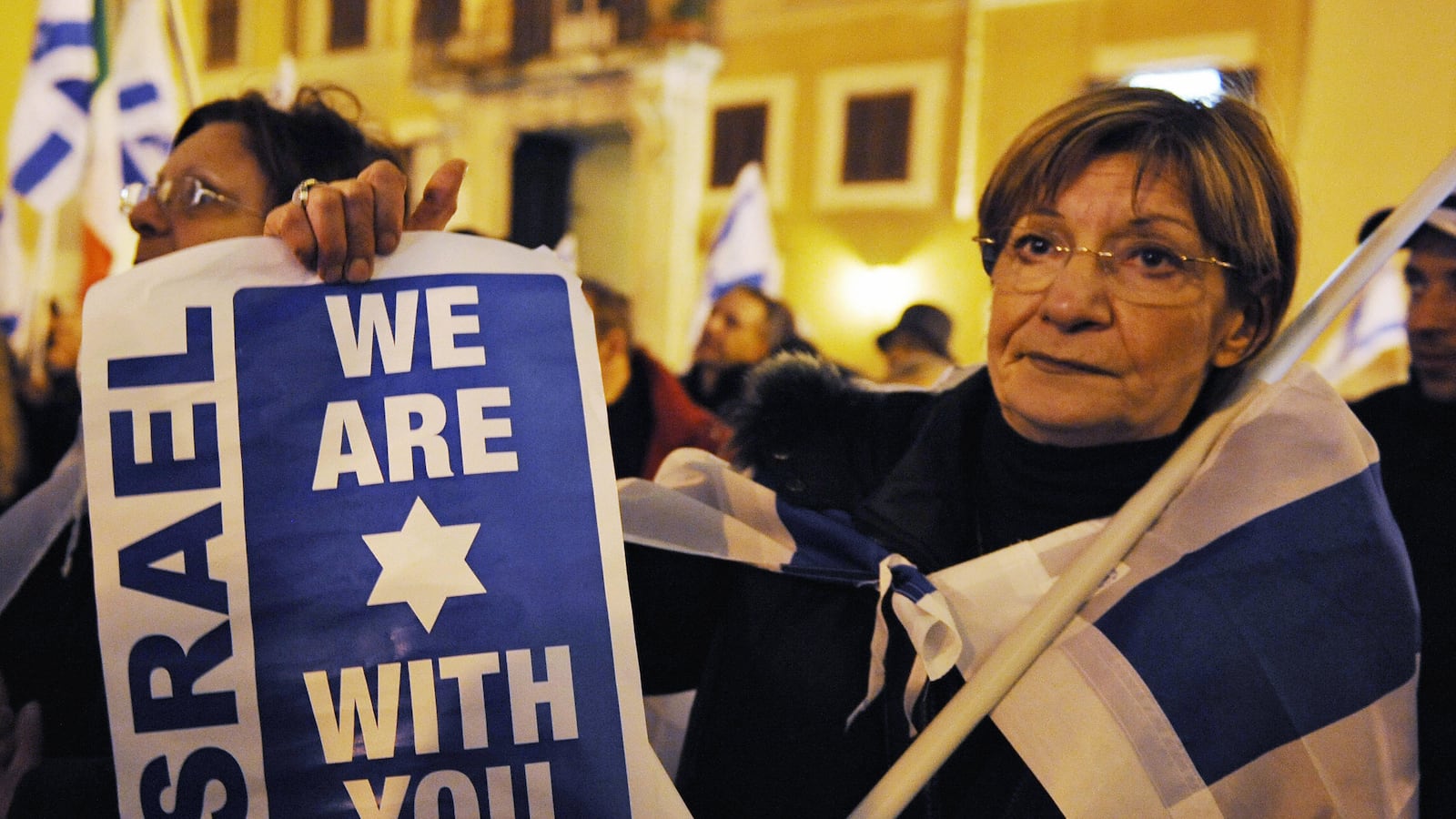Like Caesar's Gaul, all progressive American Zionists and their organizations are divided into three parts.The first part, probably the largest (I will call them Happy Zionists), continues to believe what they have believed for 10 or 20 years or more—that soon, certainly during their lifetime (even those who are pretty old) Israel and Palestine will make a deal and the inevitable two-state solution will become a reality. For this faction, hope is a strategy. In its ever-optimistic view, a lot of really bad news is viewed as something else entirely. These folks find new cause for hope every Monday and Thursday. In their liberal Zionist organizational board meetings; in reports they receive from their own analysts as well as from Israeli colleagues, they are told that things are dire but looking up.

Take the success of Yair Lapid. His party, Yesh Atid, did unexpectedly well in the recent Israeli elections. He has made it abundantly clear that he will never divide Jerusalem. Everyone knows this is a deal-breaker. Yet Lapid’s success makes Happy Zionists happy.
And President Obama, our beloved President Obama: Progressive Zionists were going to give him Jewish cover and he was going to Israel to make a deal—the very idea that launched J Street. There is no reason at all to believe that he will do so in his second term, but don’t try to tell that to Happy Zionists.
And then there is Salam Fayyad, also beloved to liberal Zionists. He and his state-building are so impressive; surely they will not be for naught and they will lead to a deal. The Palestinian economy is in shambles but Fayyad's bar codes will save the day.
You will see such happy talk in the official pronouncements and on the websites of the organizations of the Happy Zionists: Americans for Peace Now, J Street, Israel Policy Forum, and the New Israel Fund.
The second part of the community of progressive Zionists, the Sad Zionists, see their dream in ruins. They used to be Happy Zionists but they have cancelled their membership (often secretly) in the last few years. They truly believed for all these years that democratic and Jewish is not an oxymoron. However, just as the mainstream Jewish organizations failed them over the last 20 years, they worry that the progressive ones are doing so now. They hear the happy talk and they shake their heads or roll their eyes (discretely) and wonder what these people are smoking. The Sad Zionists are long on spokespeople (Roger Cohen, Dror Moreh of “Gatekeepers” fame, Peter Beinart, Leonard Fein) but short on strategy. Sad Zionists are, after all, Zionists and if a particular strategy doesn’t leave a Jewish majority in place, they cannot swallow it. And here is the truly sad thing—the organizations dearest to the Sad Zionists are the Happy Zionist organizations, the ones that posit two states or bust: Peace Now, J Street, IPF, and the New Israel Fund. But Sad Zionists have nowhere else to go. Perhaps the less Manichean approach of younger activists like Dan Goldenblatt of IPCRI, respecting Zionist values but also facing reality, will give the Sad Zionists (and the happy ones) a fresh start.
And then there is the third part. I will call them Legacy Zionists. They remember their love for Israel, their hope for Oslo and their belief in a two-state solution, but they have checked out of this particular struggle, becoming agnostic on how many states we should end up with or even on whether we have to have a Jewish majority in any of them. They see that those who are actually in charge, the Israelis themselves, are grappling with other issues, not peace and Palestine, and it seems that if Israelis are not all in, then the Legacy Zionists, too, should move on. But they have not left their activism behind. Many of them have turned their Zionist zeal into saving Israel’s soul by another route—fighting for Palestinian political and civil rights in the occupied territories and in Israel itself. They belong to Jewish Voice for Peace, Global BDS, Jews For Justice For Palestine, and Mondoweiss.
What do these three streams of progressive Zionists, with their collaborations here and wars of words there, their successes and failures, do for the core values of progressive Zionism? Does a secure democratic Israel seem closer or farther away? The news from the ground is not encouraging, says I, a Sad Zionist.
Which of the three will survive as the authentic voice of the community? The one that takes most seriously the Israeli Declaration of Independence promising "a state based on the precepts of liberty, justice and peace taught by the Hebrew prophets; one that upholds the full social and political equality of all Israel's citizens, without distinction of race, creed or sex." If that is not True North, then we haven't got much worth saving.





